"Who Can Enter the Thoughts of a Woman Who Wants Children and Cannot Have Them?"
Rabbi Zion Cohen, Rabbi of Or Yehuda, alongside Rabbi Aharon Butbul, leads the 'Dorot' fertility institute following the rulings of Rabbi Ovadia Yosef. In a rare and open conversation, he discusses the fertility treatments he and his wife underwent, his love for the people of Israel, and the feelings of thousands of childless couples. "There is no more beautiful sound than hearing a baby's voice in the house after decades of infertility."
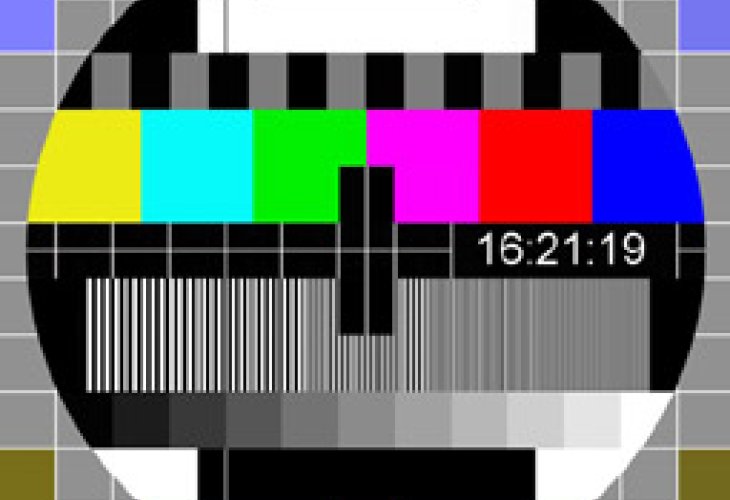 Rabbi Zion Cohen (Photo: Private Album)
Rabbi Zion Cohen (Photo: Private Album)"I don't think anyone can understand what a woman goes through who has been trying to get pregnant for 11 years," begins Rabbi Zion Cohen, Rabbi of Or Yehuda and head of the 'Dorot' Institute, a halachic fertility institute that he leads together with Rabbi Aharon Butbul, head of the 'Yabia Omer' rabbinical court. In this interview, he reveals a part of his personal life that led to opening this unique institute. Rabbi Cohen himself, along with his wife Lea, went through intensive fertility treatments 20 years ago when she stopped giving birth after their first son, Rabbi Itai Cohen, who now manages the institute himself, closing a family circle. "Those were different times," recalls the Rabbi. "Back then, the treatments were not simple at all, but thank God, it was successful and we are now raising a blessed generation of four children who excel in all they do."
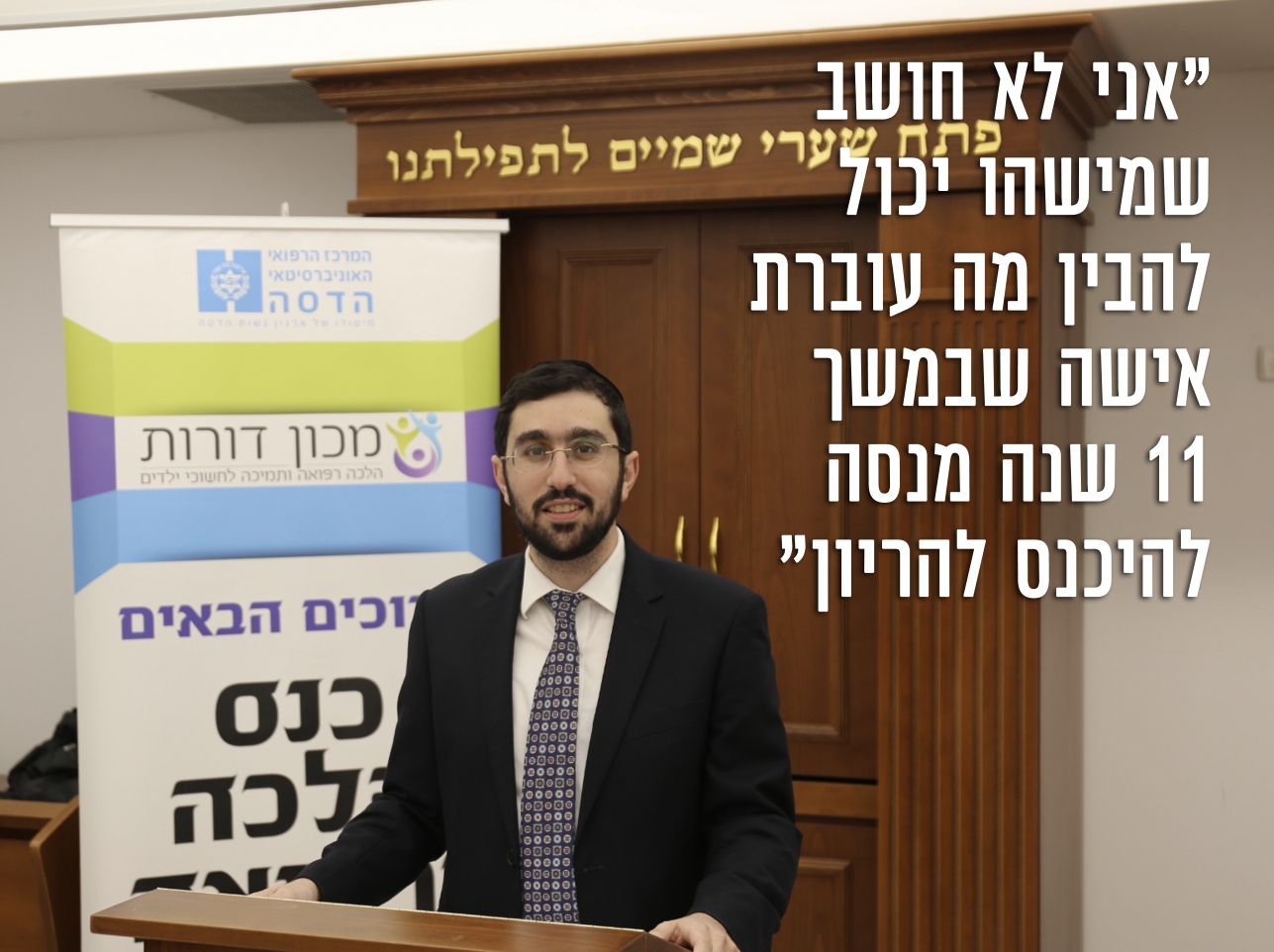 Rabbi Itai Cohen
Rabbi Itai CohenA Dayan with a Master's Degree
It's hard not to like Rabbi Zion Cohen. He is friendly, smiles a lot, and an engaging conversationalist. Rabbi Cohen was born in Morocco to a distinguished rabbinical family and immigrated to Israel with his parents and nine siblings to Yeruham and from there to Sderot. Like most Moroccans at the time who came to Israel, the family was "Zionist in the original sense of the word," as the Rabbi puts it. "Love of Zion pulsed through all Jews wherever they were, some were saints and some were laborers. There was no 'factionalism'. My father of blessed memory didn't know what a Chassidut was, or any other, Lithuanian, national religious, modern religious, certainly not religiosity painted with political shades. Life in Morocco, as is well known, was homogeneous in this respect—all Jews belonged to Judaism, keeping Torah and mitzvot, some more observant than others, and everyone deferred to those more knowledgeable and wise, both great and small. Even those who weren't so observant didn't, God forbid, do things 'to provoke'. They too had complete submission to rabbis and open admiration."
Rabbi Cohen is keen to mention his historical background, perhaps to explain how in his immediate family there are nine siblings today each belonging, in our terms, to a different sector, political and cultural, different from one another: "Our home was very diverse, truly like all of Israel within it," he explains. "All my brothers and sisters are academics with master's degrees and above. We have all kinds in our house—my eldest brother is Dr. Aharon Cohen, a Labor Party man and researcher of development towns, I have another brother who is a Meretz party man. And we are not only on good terms, but also in full harmony."
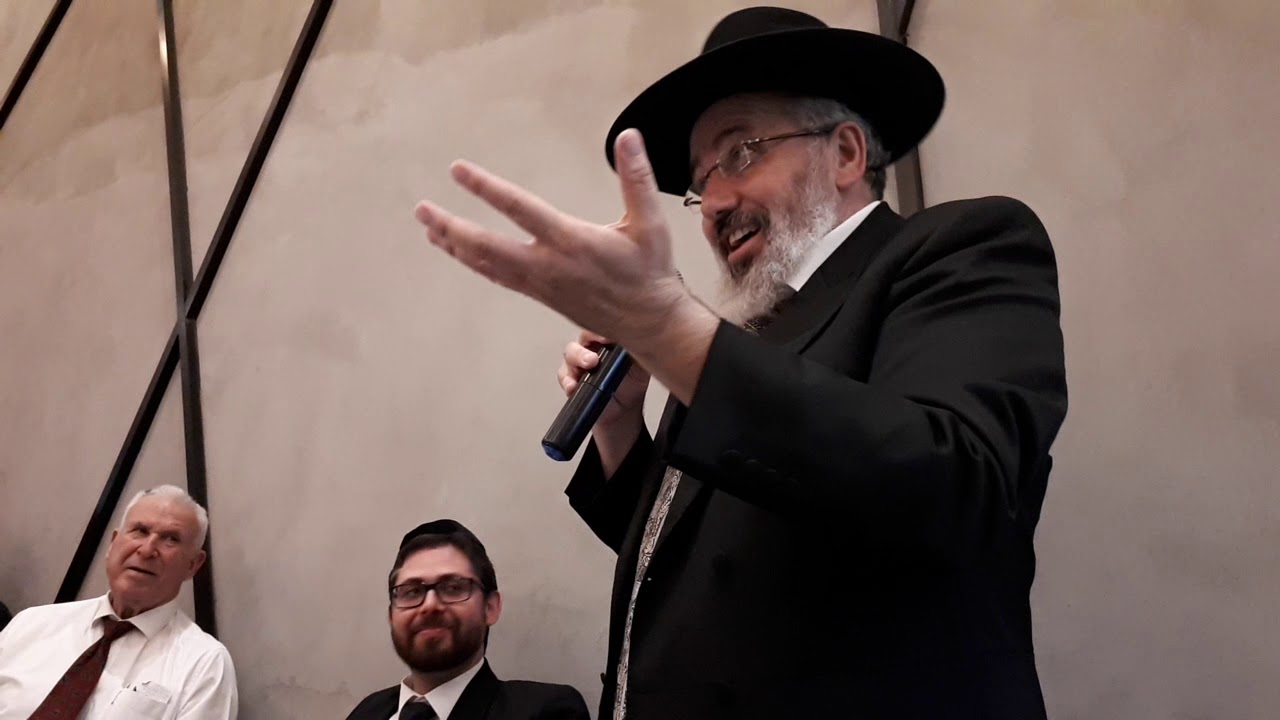
The Rabbi studied in a state religious elementary school in Sderot until the sixth grade, and his father, who saw his inclination for Torah study, sent him to the 'Mishkan Shimon' yeshiva in Bnei Brak. Upon reaching bar mitzvah, the Rabbi moved to the 'Porat Yosef' yeshiva, and after two years returned to Bnei Brak to a smaller yeshiva. From there, a sudden transition to the 'Hevron' yeshiva in Jerusalem, where he endeared himself to Rabbi Hillel Zaks of blessed memory, grandson of the Chofetz Chaim, with whom he studied for five years. After his studies and marriage, the Rabbi taught at the 'Rambam' and 'Beit Yosef' yeshivas in Tel Aviv and the rabbinical seminary in Savion and served as a military rabbi, including active reserve duty until 18 years ago. Like his brothers, he holds a master's degree (a bachelor's from Touro College in Business Administration and a master's from Ono Academic College in Business Administration).
Encouraged by Rabbi Ovadia Yosef, Rabbi Cohen decided to run for Chief Rabbi of the Sha'ar HaNegev Regional Council, which includes 11 kibbutzim, where he served for almost twenty years. "A Chief Rabbi for 11 kibbutzim is not simple," says the Rabbi with a smile, "but we managed to make Judaism pleasant and beloved, only in peaceful ways and not, God forbid, through coercion. The essence of Judaism is that it embraces all those within its bounds. Tell me it was simple? No. During that time, I often needed to consult on very complex issues with Rabbi Ovadia, and there I saw how the Rabbi, in the power of his leniency ('kocha dehetera') and phenomenal genius, tried to find solutions that would ease the burden for farmers and kibbutz members in matters that were truly of Torah origin. Jewish law knows to provide varied halachic responses with tools that are part of its foundation for all needs and lifestyles. There's no same ruling for a Jew in Bnei Brak as for a Jew in the kibbutz." Rabbi Cohen's tenure in Sha'ar HaNegev was so successful that the residents were unwilling for him to leave and organized petitions calling for his continued service.
In parallel, Rabbi Cohen served in several roles within the Chief Rabbinate Council, and in 2010 ran for Chief Rabbi of Or Yehuda. His candidacy faced many challenges. Some in the community preferred Rabbi Yaakov Brahum, the son of the previous Chief Rabbi who passed away, a resident of Or Yehuda, "and not a foreign implant," as they called the potential appointment of Rabbi Cohen. A petition was filed hoping to stop Rabbi Cohen's appointment. The deciding factor was a ruling by Rabbi Ovadia Yosef, "The role of a city Rabbi is measured by his ability to bring together different populations, as Rabbi Zion did in Sha'ar HaNegev." This ruling closed the controversy, and Rabbi Cohen was appointed Chief Rabbi of Or Yehuda, where he serves to this day.
My Wife Was in Distress
Rabbi Cohen's home maintains a strict practice, surrounded by strong boundaries. However, in a rare act, the Rabbi agreed to open a little window into this wall and speak openly about his personal life, which led him to establish the Dorot Institute, inaugurated only this year. "It was important for me to be interviewed because of the institute we opened, Dorot Institute, which, among other things, deals with fertility treatments according to halacha and following Rabbi Ovadia's rulings," says Rabbi Cohen. "This institute is a great salvation for an entire sector of tens of thousands of childless Torah observant couples, providing a halachic response for them, and not only a halachic response but also personal support and even subsidization for couples in need."
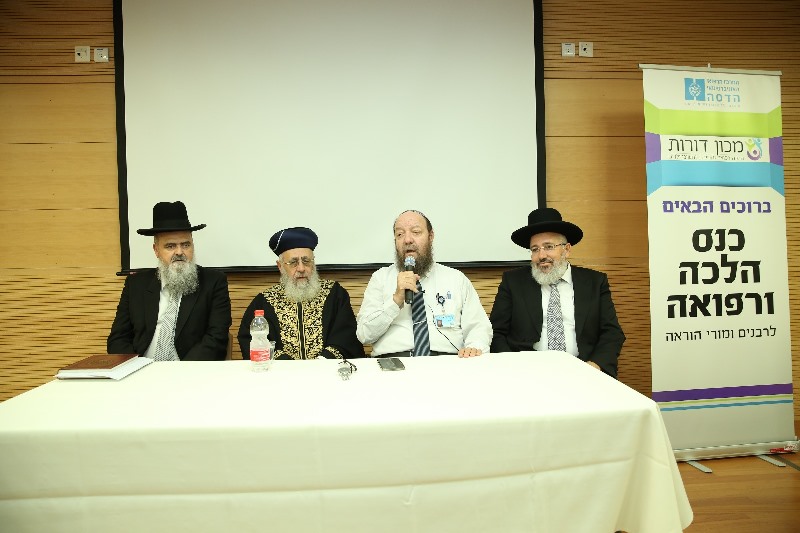 Dorot Institute Conference
Dorot Institute ConferenceAs you mentioned, you personally understand what these couples go through...
"That's right. About twenty years ago, my wife and I went through a difficult period that lasted 11 years. Our oldest son, Rabbi Itai, 38, was born naturally, but thereafter, there was a pregnancy that did not succeed, and a second pregnancy that required early delivery for a baby that did not survive, leading to a certain type of infertility that lasted several years. It wasn’t easy. Lea, my wife, loves children, and this caused her much grief. Although she is an *eshet chayil* in her own right and, God forbid, doesn't need children to prove it, as I kept telling her all the time, but in this, we men don’t understand. We cannot enter into the thoughts and feelings of a woman who desires children and cannot have them. She had great sorrow, and of course, I, as her husband, saw her in this distress.
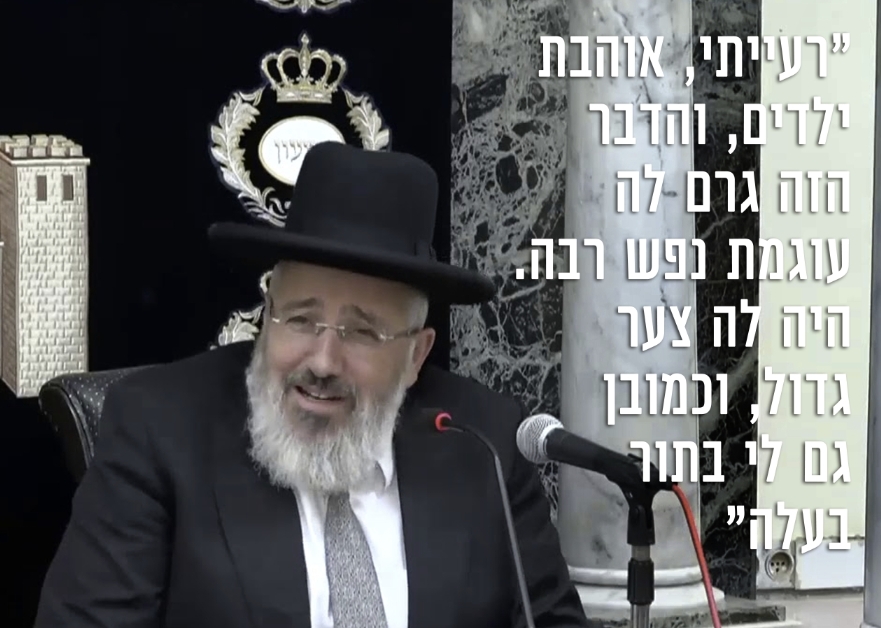
"We started fertility treatments. The field of gynecology was not as developed then as it is today. Furthermore, we are Torah-observant people, and this field of treatments was not so popular due to its halachic complexity. But it helped, thank God, and after that, we brought another three successful children into the world. There’s nothing more beautiful than hearing the sound of a baby in the home after years of infertility. One must understand that a person who experiences a certain issue first-hand, and a person is close to himself, understands well certain problems that people who have not experienced the same might not understand or occupy themselves with. This is why it was important for me, together with the genius Rabbi Butbul, to open the institute which is truly a salvation for many. The initiative actually did not come from me, but from a senior gynecologist at Hadassah Ein Kerem Hospital, who approached me and asked why there is no halachic institute for the ultra-Orthodox sector according to the lenient rulings of Rabbi Ovadia Yosef. From there, it evolved and received the blessing of all the Sephardic rabbis following Rabbi Ovadia's path, among them the Chief Rabbi Yitzchak Yosef."
Is there demand and response to the institute's services?
"Of course. Since we opened the institute, we've received dozens of inquiries. My son, who actually manages the institute, is an expert in gynecology and accompanies dozens of childless couples. Unfortunately, the needs of the people of Israel are great, and we have also received many requests for assistance in funding the treatments. Each fertility injection involves a cost of thousands of shekels."
The Sound of a Baby at Home
Dorot Institute aims to provide childless couples with financial assistance to reduce the economic burden of the process and treatments, as well as unique support and guidance, combining the highest level of medical expertise with comprehensive guidance regarding the halachic approach in fertility. The institute was founded in cooperation with the medical centers 'Hadassah Ein Kerem' and 'Mount Scopus' in Jerusalem and in cooperation with the important rabbinical court "Yabia Omer." The institute is supported by top doctors in gynecology, fertility, genetics, pregnancy, and childbirth.
Rabbi Cohen's son, Rabbi Itai, recounts: "I grew up in a home where this issue was in the background, as my father shared. I see, thank God, my siblings who were born through divine assistance due to various treatments. This is priceless. The institute was born out of listening to the distress of many couples who anticipate and yearn to embrace a child of their own and long to hear the sound of a baby in their home, but their dream realization entails a heavy price, both from the aspect of exhausting treatments and financially due to the high costs."
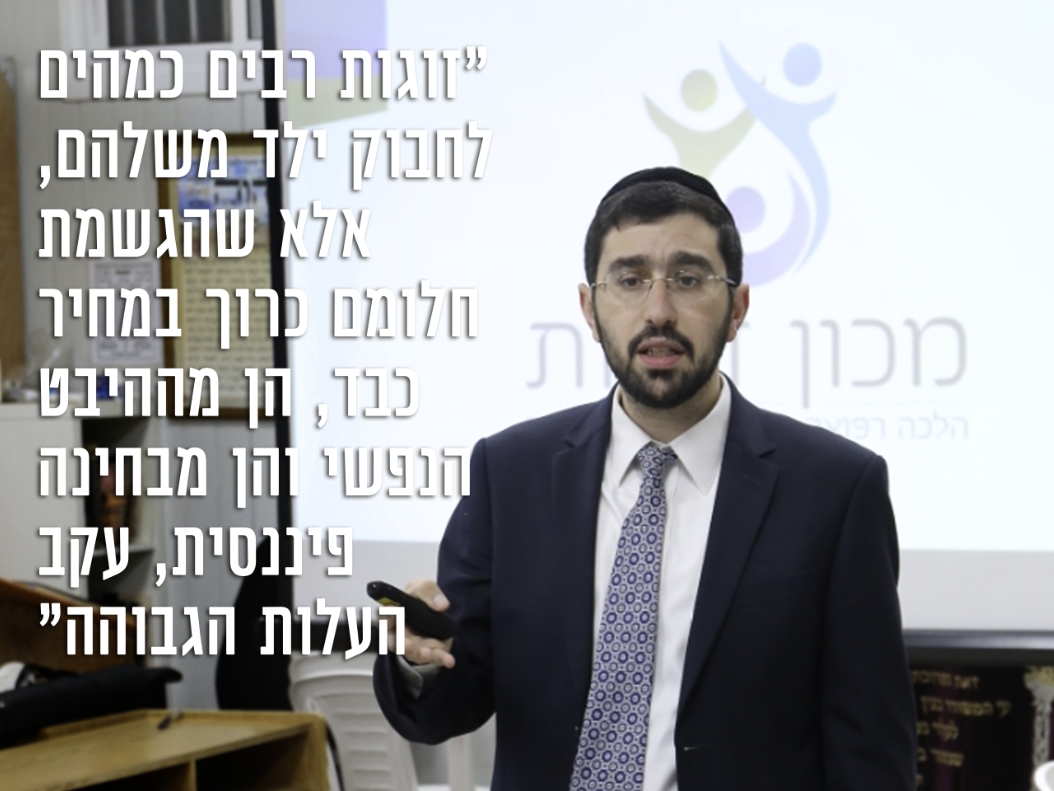
What services does the institute provide?
"The institute provides financial assistance; emotional support; halachic and medical guidance tailored to each couple, fertility preservation treatments, supervision and oversight of IVF processes, effectively serving as a one-stop address for everything related to fertility."
A Beloved Life Created in God's Image
The conversation with Rabbi Itai's father, Rabbi Zion Cohen, is engaging and also ventures into distant realms of current affairs, with the Rabbi displaying impressive knowledge and familiarity concerning science, academia, the military, and politics. But it shouldn’t be surprising; the Rabbi himself served as a consultant to Minister Michael Melchior, the Minister for Society and Diaspora Affairs. He also serves as the Chairman of the public management and participates in the activities of "Beit Mo'atza Yachad," an association dedicated to promoting shared life among all sectors of Israeli society - Jews, Haredim, religious, and traditionalists.
"This issue of bringing all populations within the Jewish people closer together is very close to my heart," explains the Rabbi about his public mission. "I think we really do need to listen to each other. I'll give you an example that really bothers me: there’s a notorious person in Tiberias, Ron Kobi (the mayor), who tramples over everything sacred to religious and traditional people without consultation and without unifying. Opposite him, there are secular mayors in purely secular cities who do not neglect their city's religious and traditional residents. They know how to unite and not divide, and that’s how it should be conducted—brotherhood, because we are all from the same father. We genuinely need this peace among us."
But today, it seems there is a split that cannot be healed.
"I'll ask you a question: A father to children who sees his son veer off the path, with a stubborn heart, can't say 'this is not my son, and he's not my flesh and blood,' but will do everything possible not to distance him, and certainly not to hate him. We have seen how great figures treated their sons and children who did not follow in their fathers' paths. Did they, heaven forbid, humiliate them, hate them? On the contrary, they always embraced them with love and brotherhood. After all, they are part of them. And is the Jewish people not one large family, is it not part of the body called Judaism, what shall we say, this arm hurts me, let’s cut it off? There are those who have decided to separate, and I am not among the separators or the separatists. We are talking about human beings, and any division by its very nature needs to be returned to its place."

